- Home
- About Us
- Courses
- NSHM Business School
- BBA (Bachelor of Business Administration)
- BBA – Hospital Management
- BBA – Global Business
- BBA – Sports Management
- BBA – Accountancy, Taxation & Auditing
- BBA – Accountancy, Taxation and Auditing + BSE Certification
- BBA – Banking & Financial Services
- MBA (Master of Business Administration)
- Executive MBA
- MHA (Master of Hospital Administration)
- NSHM Institute of Health Sciences
- Bachelor of Pharmacy
- Bachelor of Pharmacy (Lateral)
- Bachelor of Optometry
- B.Sc. – Psychology
- B.Sc. – Dietetics and Nutrition
- B.Sc. – Medical Lab Technology
- B.Sc. – Radiology & Medical Imaging Technology
- B.Sc. – Critical Care Technology
- B.Sc. – Yoga
- Master of Optometry
- Master of Optometry (BL)
- Master of Pharmacy – Pharmacology
- Master of Pharmacy – Pharmaceutics
- Master of Public Health
- Master of Public Health (BL)
- M.Sc. – Clinical Psychology
- M.Sc. – Dietetics and Nutrition
- M.Sc. – Medical Lab Technology
- M.Sc. – Radiology & Imaging Technology
- M.Sc. – Yoga
- M.Sc. – Yoga (BL)
- NSHM Design School
- NSHM Institute of Computing & Analytics
- NSHM Institute of Engineering & Technology
- B. Tech. – Mechanical Engineering
- B. Tech. – Mechanical Engineering (Lateral)
- B. Tech. in Civil Engineering
- B. Tech. – Civil Engineering (Lateral)
- B. Tech. – Computer Science Engineering
- B. Tech. – Computer Science Engineering (Lateral)
- B. Tech. – Electronics & Communication Engineering
- B. Tech. – Electronics & Communication Engineering (Lateral)
- B. Tech. – Artificial Intelligence and Machine Learning
- B. Tech. – Artificial Intelligence and Machine Learning (Lateral)
- B. Tech. – Electrical Engineering
- B. Tech. – Electrical Engineering (Lateral)
- B. Tech. – Data Science
- B. Tech. – Data Science (Lateral)
- NSHM Institute of Hotel & Tourism Management
- BBA – Aviation Hospitality Services and Management
- BBA – Travel & Tourism Management
- B.Sc. – Culinary Science
- Bachelor of Hotel Management & Catering Technology
- B.Sc. – Hospitality & Hotel Administration
- Master of Tourism & Travel Management
- Master of Tourism & Travel Management (BL)
- M.Sc. – Hospitality Management
- M.Sc. – Hospitality Management (BL)
- NSHM Institute of Nursing
- NSHM Media School
- NSHM Institute of Pharmaceutical Technology
- NSHM Business School
- Schools & Campuses
- Beyond Academics
- Admissions
- News & Events
- Contact Us
- KOLKATA + 91 9073328474
- DURGAPUR 0343 2533813 | 0343 2533814
- Home
- About Us
- Courses
- NSHM Business School
- BBA (Bachelor of Business Administration)
- BBA – Hospital Management
- BBA – Global Business
- BBA – Sports Management
- BBA – Accountancy, Taxation & Auditing
- BBA – Accountancy, Taxation and Auditing + BSE Certification
- BBA – Banking & Financial Services
- MBA (Master of Business Administration)
- Executive MBA
- MHA (Master of Hospital Administration)
- NSHM Institute of Health Sciences
- Bachelor of Pharmacy
- Bachelor of Pharmacy (Lateral)
- Bachelor of Optometry
- B.Sc. – Psychology
- B.Sc. – Dietetics and Nutrition
- B.Sc. – Medical Lab Technology
- B.Sc. – Radiology & Medical Imaging Technology
- B.Sc. – Critical Care Technology
- B.Sc. – Yoga
- Master of Optometry
- Master of Optometry (BL)
- Master of Pharmacy – Pharmacology
- Master of Pharmacy – Pharmaceutics
- Master of Public Health
- Master of Public Health (BL)
- M.Sc. – Clinical Psychology
- M.Sc. – Dietetics and Nutrition
- M.Sc. – Medical Lab Technology
- M.Sc. – Radiology & Imaging Technology
- M.Sc. – Yoga
- M.Sc. – Yoga (BL)
- NSHM Design School
- NSHM Institute of Computing & Analytics
- NSHM Institute of Engineering & Technology
- B. Tech. – Mechanical Engineering
- B. Tech. – Mechanical Engineering (Lateral)
- B. Tech. – Civil Engineering
- B. Tech. – Civil Engineering (Lateral)
- B. Tech. – Computer Science Engineering
- B. Tech. – Computer Science Engineering (Lateral)
- B. Tech. – Electronics & Communication Engineering
- B. Tech. – Electronics & Communication Engineering (Lateral)
- B. Tech. – Artificial Intelligence and Machine Learning
- B. Tech. – Artificial Intelligence and Machine Learning (Lateral)
- B. Tech. – Electrical Engineering
- B. Tech. – Electrical Engineering (Lateral)
- B. Tech. – Data Science
- B. Tech. – Data Science (Lateral)
- NSHM Institute of Hotel & Tourism Management
- BBA – Aviation Hospitality Services and Management
- BBA – Travel & Tourism Management
- B.Sc. – Culinary Science
- Bachelor of Hotel Management & Catering Technology
- B.Sc. – Hospitality & Hotel Administration
- Master of Tourism & Travel Management
- Master of Tourism & Travel Management (BL)
- M.Sc. – Hospitality Management
- M.Sc. – Hospitality Management (BL)
- NSHM Institute of Nursing
- NSHM Media School
- NSHM Institute of Pharmaceutical Technology
- NSHM Business School
- Schools & Campuses
- Beyond Academics
- Admissions
- News & Events
- Contact Us

Spanda

Introduction
Education goes beyond accumulating information and pursuing careers. The current education system heavily focuses on developing the left brain, which represents intellect, while neglecting the right brain, responsible for emotions and creativity. Emotions play a crucial role in shaping behavior and handling life’s challenges. Without nurturing emotional intelligence, individuals struggle with conflicts, blocks, and psychological issues, leading to unrest and psychosomatic diseases.
“It is short of a miracle that modern methods of instruction have not already completely strangled the holy curiosity of enquiry, because what the delicate little plant needs most, apart from initial stimulation, is freedom; without that it is surely destroyed”.
In the yogic system, knowledge assimilation occurs spontaneously at deeper levels of the mind. The pineal gland plays a significant role in this process. However, over time, it has degenerated, with its influence diminishing with age. Yoga recognizes the pineal gland as the monitoring and regulating station in the brain, balancing its activities and maintaining receptive order. In yoga, the pineal gland is said to be the physical correlate of the Ajna. Yogis refer to it as the third eye, while philosophers call the supermind.
Yoga, an art and science of living, encompasses various disciplines for the holistic development of individuals. Beginning with the physical body through the practice of Asanas, yoga gradually integrates the mind and body. Pranayama, the control of breath, oxygenates the brain and directly impacts emotions, fostering emotional stability and unleashing mental and creative energies. Relaxation techniques reduce stress, quiet the mind, and channel focused mental energy, leading to equanimity.
In summary, education should transcend the mere accumulation of information and career goals. By embracing the principles of emotional intelligence and incorporating practices like yoga, we can foster a harmonious integration of mind, body, and emotions, leading to a more balanced and fulfilling life.
Yoga serves as a comprehensive education system applicable to all students, cultivating physical strength, mental discipline, attention, concentration, and latent creativity. It promotes a balanced and total personality, making it a valuable tool for personal growth and development.
Programs
Offered

Short-Term
Certificates Program
Our
Mentor
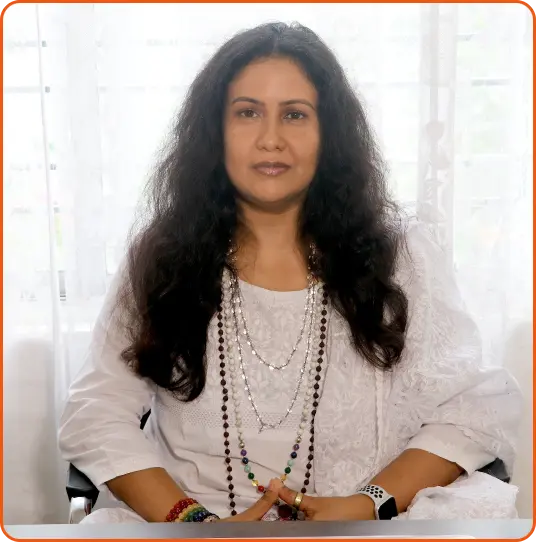
Mary Cecil
Yogacharya
- Yogacharya Mary Cecil is the HOD, Department of Yoga, NSHM School of Health Sciences., NSHM Knowledge Campus WB.
- She is the Chairperson (Academics) Indian Yoga Association, WB Chapter.
- She is a Visiting Teacher at Parmarth Niketan Ashram, Rishikesh.
- She is a Council Member of WICCI West Bengal Yoga Council.
- She is the Yoga ambassador of FitExpo, the largest fitness expo of Eastern India.
- She is a Life Member of Indian Yoga Association.
Explanation of

SPANDA is a Sanskrit term that refers to the subtle creative pulse of the universe as it manifests into the dynamism of living form. When we can sense the throb of SPANDA inside us, we are sensing our personalized spark of the omnipresent and vast primordial life force. SPANDA vitalizes every movement – the breath, cellular metabolism, thoughts and feelings. By attuning to SPANDA and working with it, we not only release contractions on the physical level, but go deep into ourselves to reveal our authentic, multidimensional wholeness.
Yoga Darshana of Maharishi Patanjali , based on the Samkhya Darshana, is perhaps the earliest philosophy to emerge from the Vedic corpus. It encourages aspirants to undertake a discriminative analysis of creation, and thereby realise one’s true nature. Samkhya postulates two eternal realities:
PURUSHA : the witnessing consciousness , and PRAKRITI : the root cause of creation, composed of three GUNAS SATTVA, RAJAS & TAMAS.
When all the three gunas are in harmony and balance, prakriti is in its unmanifest form. The manifest evolution begins with that first SPANDA – the subtle vibrational essence, leading to the first evolute of Prakriti : MAHAT, the supreme intelligence, metaphorically referred to as HIRANYAGARBHA : the womb of creation.


Gallery
Lorem ipsum dolor sit amet, consectetur adipiscing elit. Ut elit tellus, luctus nec ullamcorper mattis, pulvinar dapibus leo.
Lorem ipsum dolor sit amet, consectetur adipiscing elit. Ut elit tellus, luctus nec ullamcorper mattis, pulvinar dapibus leo.
Lorem ipsum dolor sit amet, consectetur adipiscing elit. Ut elit tellus, luctus nec ullamcorper mattis, pulvinar dapibus leo.
Lorem ipsum dolor sit amet, consectetur adipiscing elit. Ut elit tellus, luctus nec ullamcorper mattis, pulvinar dapibus leo.





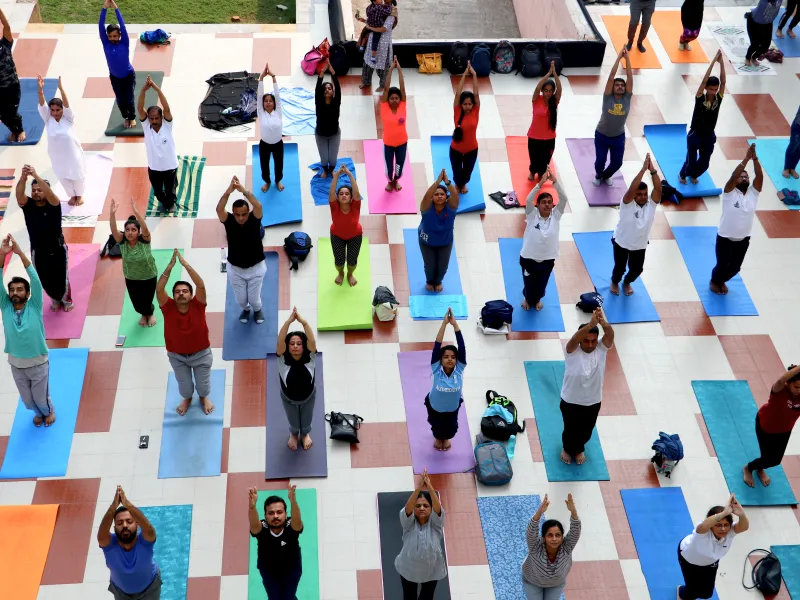

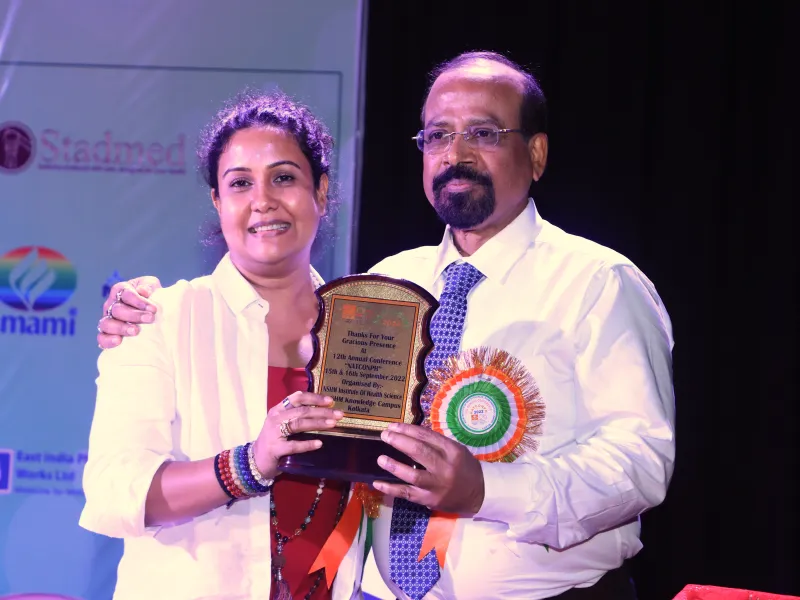

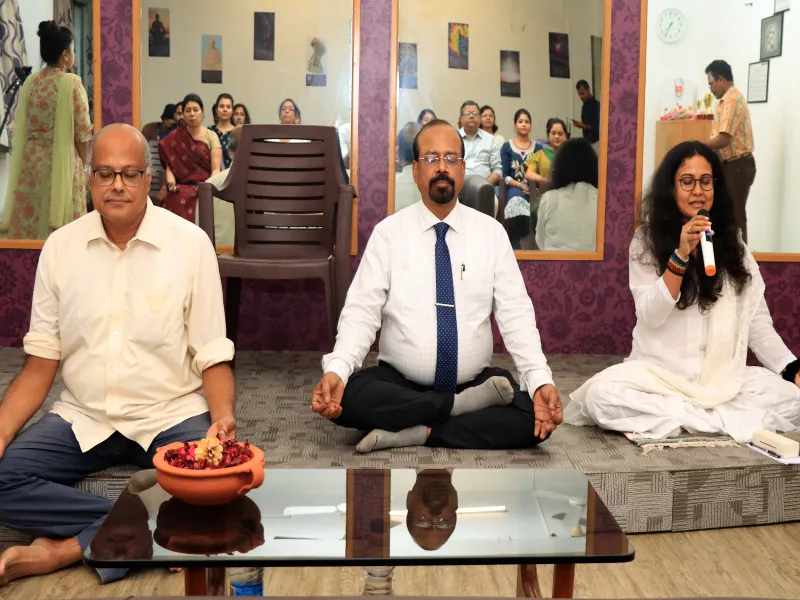
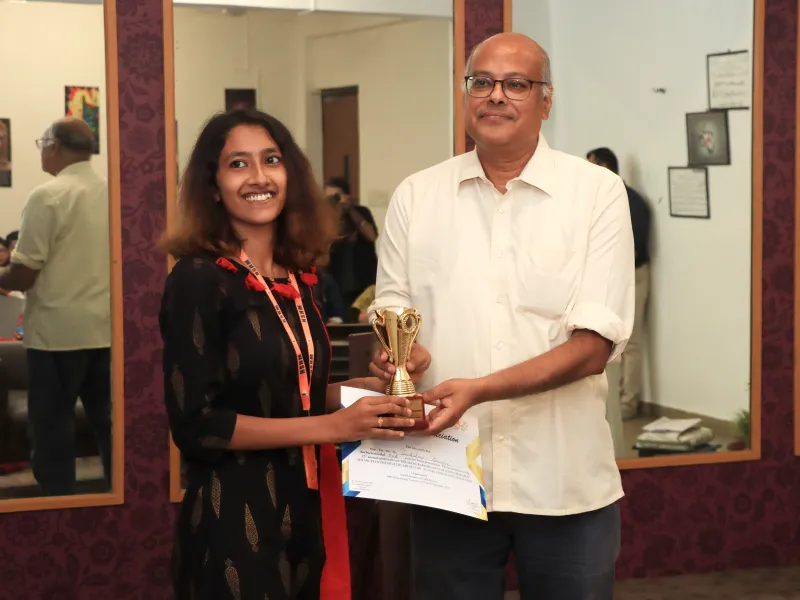
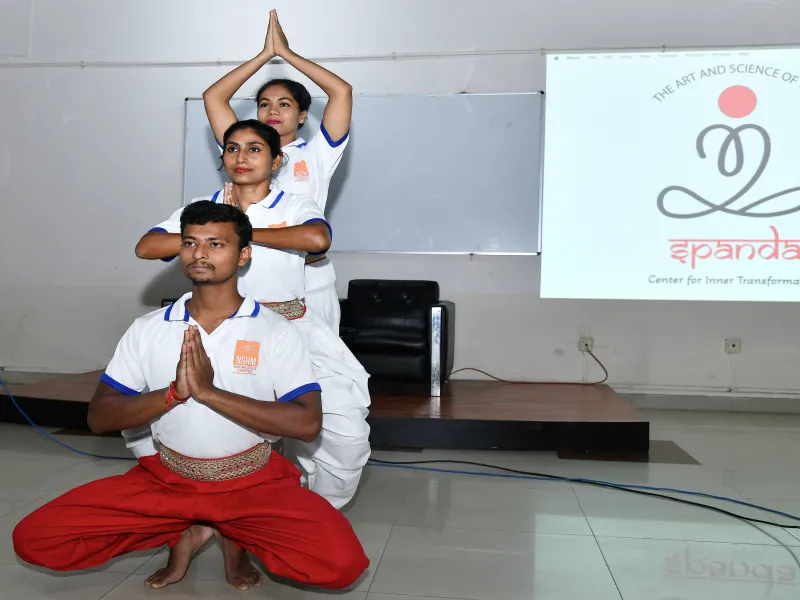
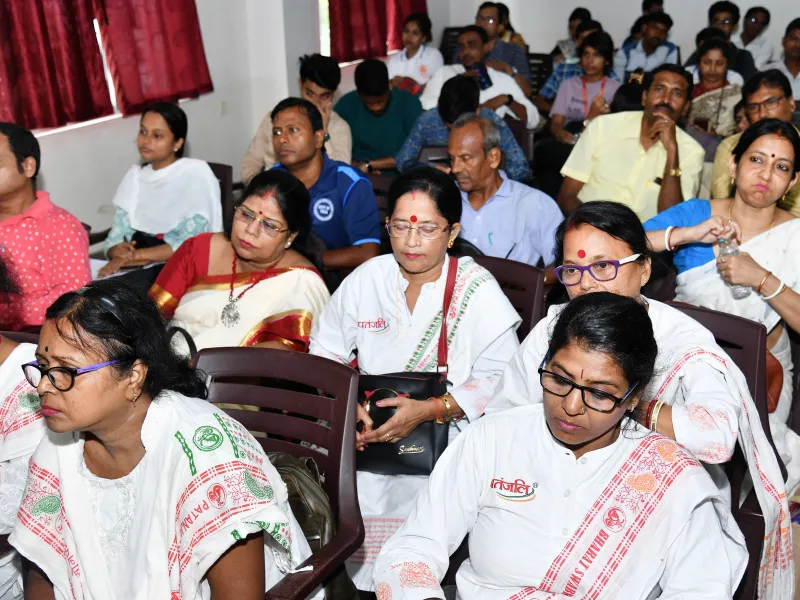
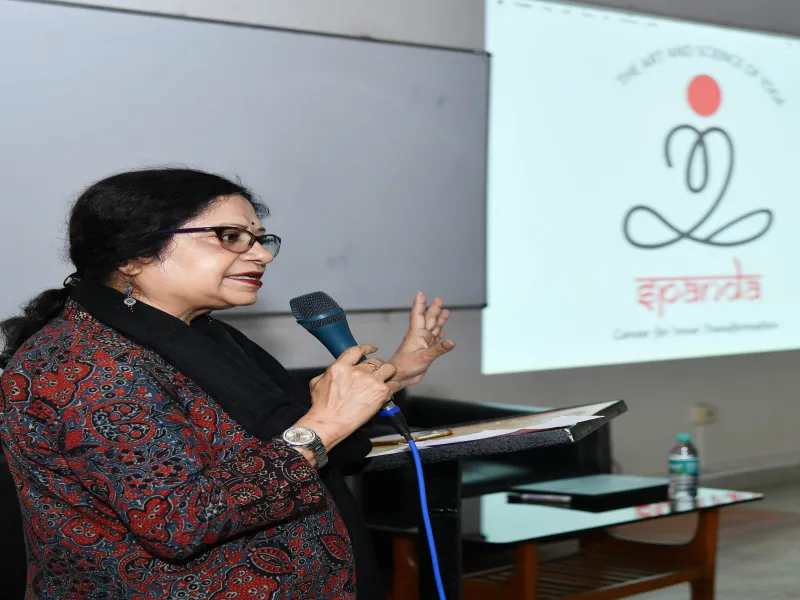
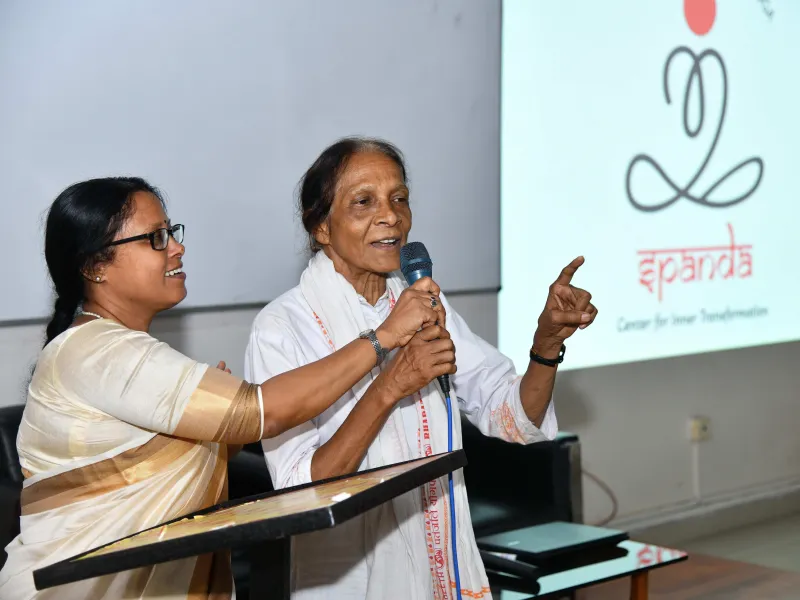
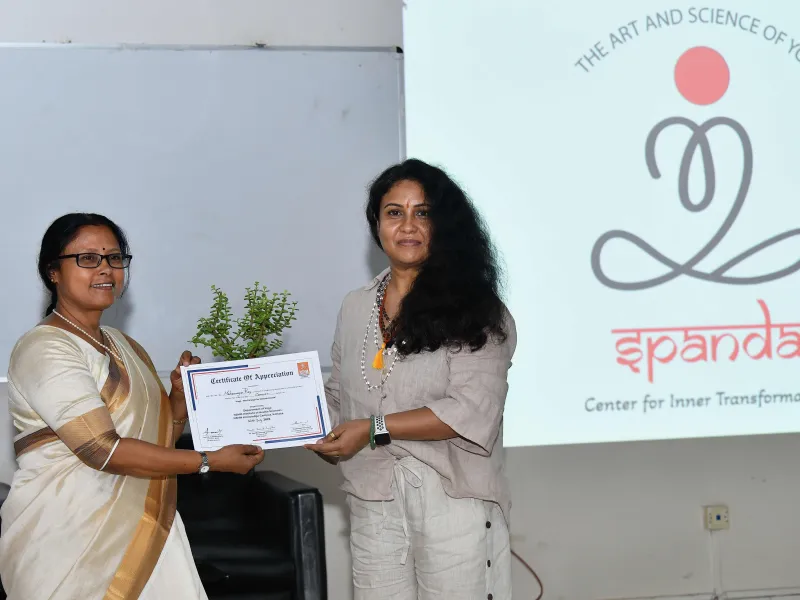
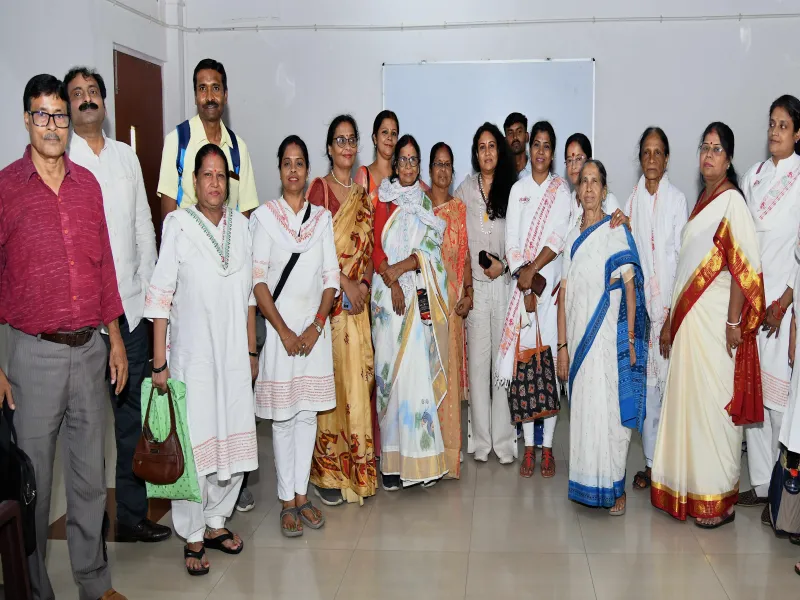



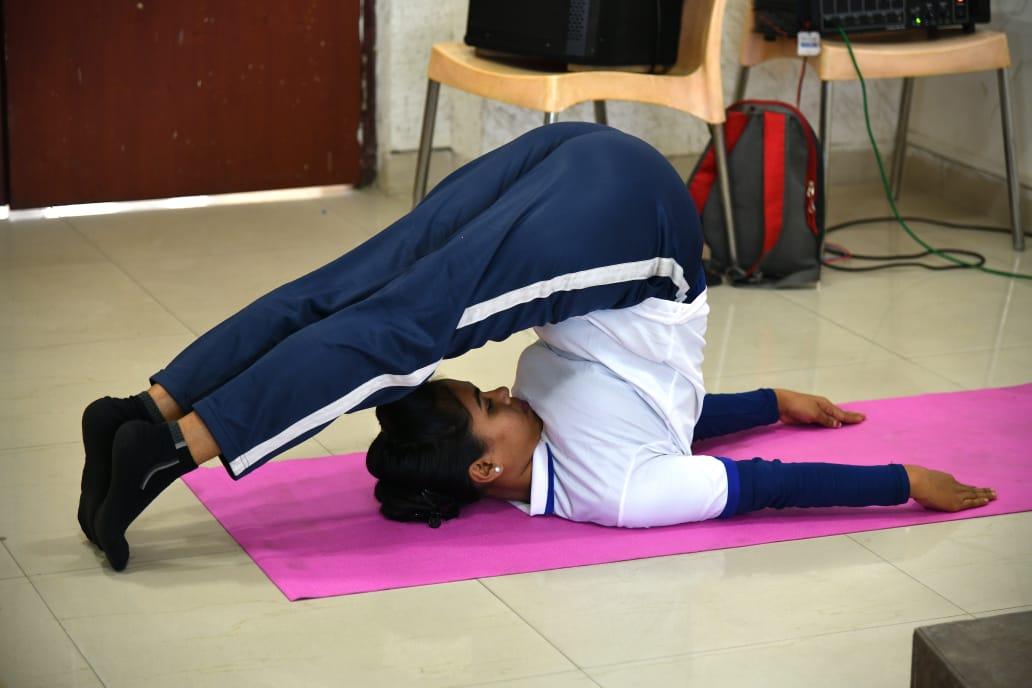
Durgapur










Kolkata
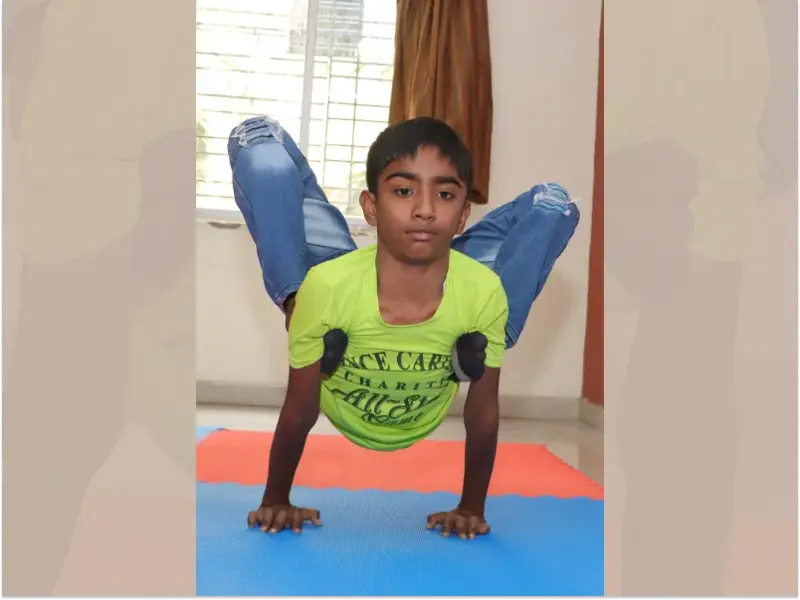

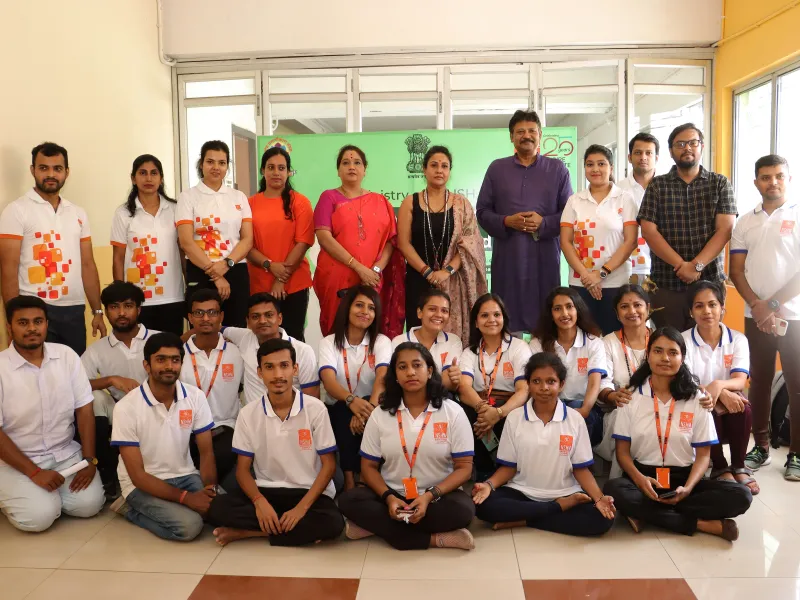






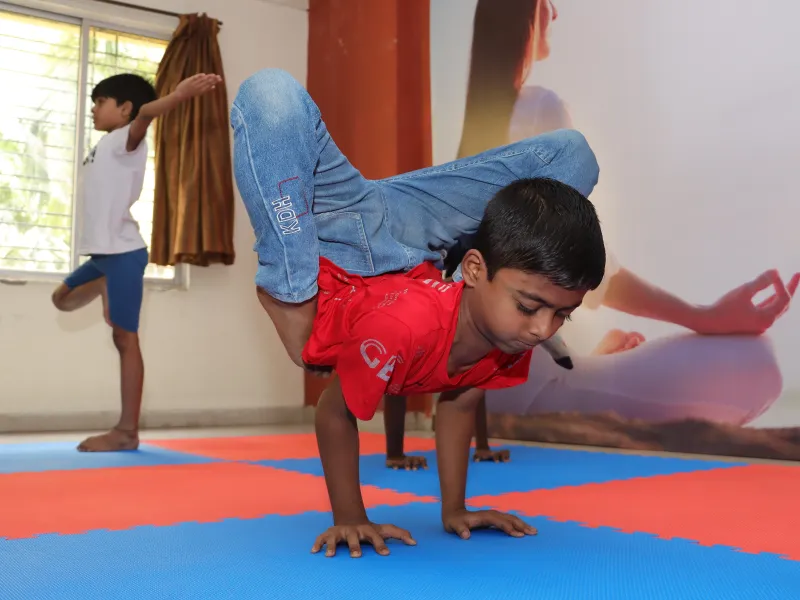



















Brochure Download
Kolkata Campus
Durgapur Campus
Admissions Open 2022-23
Admissions Open 2022-23
Scholarship Form
Spanda







